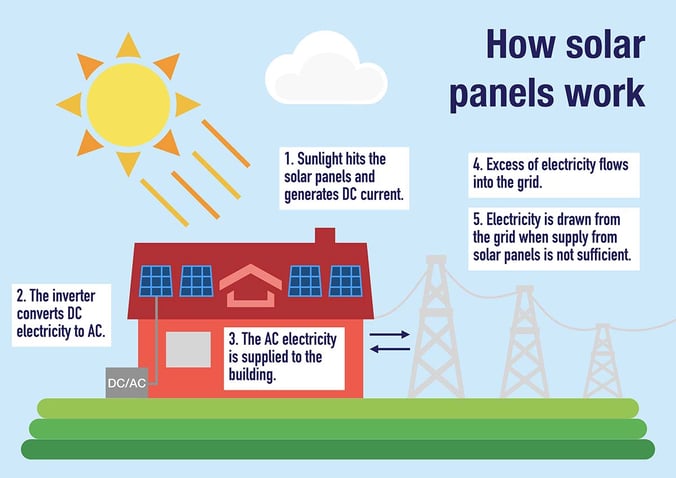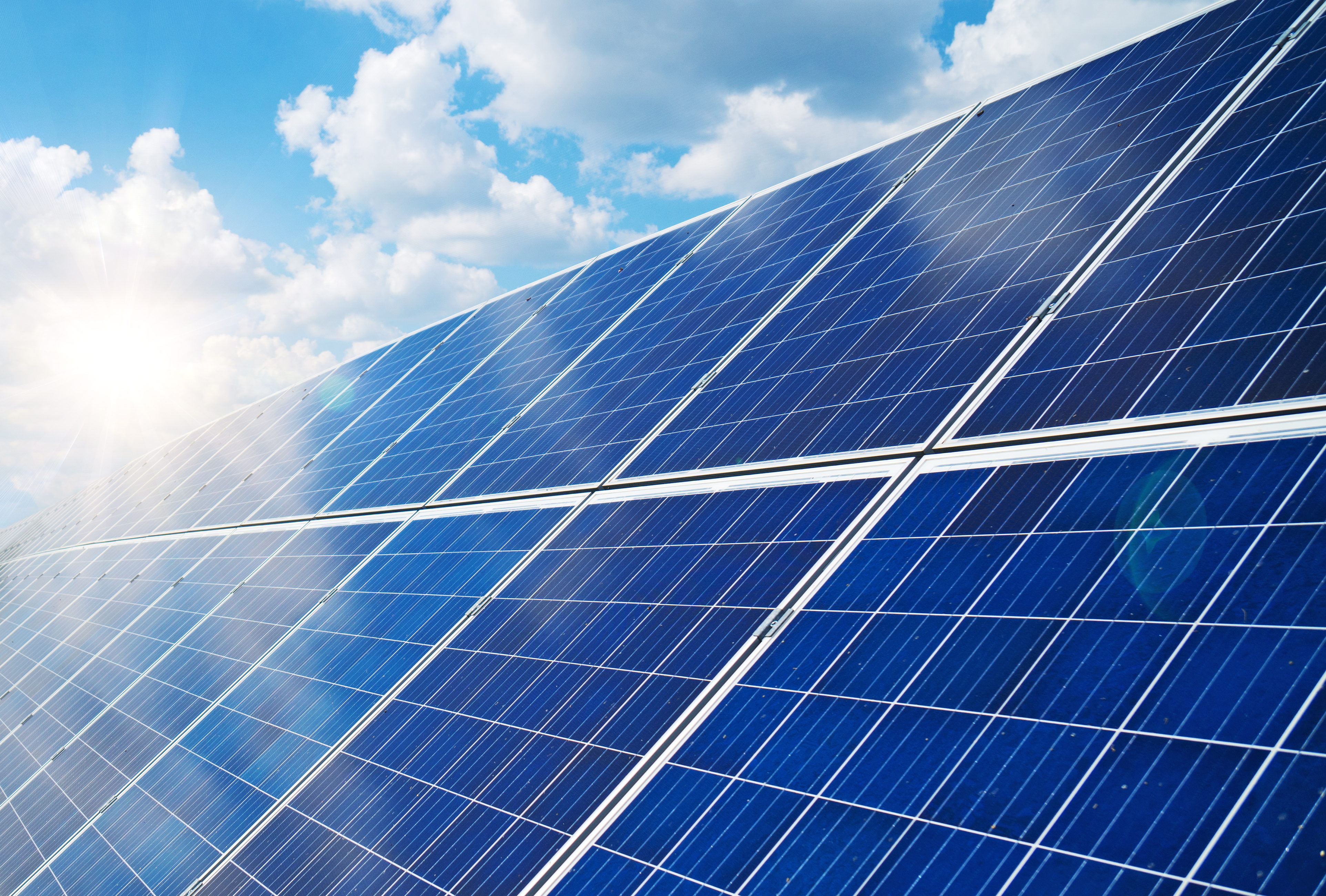There has been a lot of buzz around solar energy in the news, but what exactly is it, and should you make the switch? We sat down with our CEO, Jay Harpole, who holds multiple solar certificates from Solar Energy International (SEI), to better understand solar energy and what we should be considering. Read on for what we found out!
How does home solar energy work?
Sunlight is the largest source of energy on Earth. We all learned in grade school that plants use sunlight (light energy) and convert it to chemical energy that is used to fuel the plant. Well, some very smart people figured out how to take light energy from the Sun and convert it to electrical energy that can be used just like electricity produced from fossil fuels, nuclear energy, hydro or wind turbines. This process is called photovoltaic often abbreviated as PV. One fascinating tidbit I learned through the study of solar energy is that the Sun delivers the equivalent energy in a barrel of oil to every square meter of earth every year! That is a lot of energy being delivered to your home for free. You just have to install a PV system to take advantage of that free energy.

Can I go off-grid by installing solar panels?
Yes, you can; however, the vast majority of systems that are sold to homeowners are what is called “grid-connected” solar systems. These systems cost much less because they essentially use the electricity grid for all your “balancing” needs. Any excess electricity you may produce can be put onto the grid, and when the sun is not shining you can pull electricity off the grid.
Do these "grid-connected" systems provide their owners electricity when the electricity grid goes down, say after a hurricane or a major winter storm?
Generally, no they do not unless you have a battery system or backup generator large enough to provide your balancing needs and your system is designed to function without needing the electricity grid. While the Sun may be shinning on your panels, if the grid in your area is down, the grid-connected systems are designed to completely shut off unless they sense that the grid is energized. The reason for this is safety. If your system is still producing electricity and sending onto the grid, any lineman working an area where the grid is down could be electrocuted if a PV system sends electricity onto a supposed unenergized portion of the grid.
Please be cautious with buying a PV system that purports to provide you electricity when the grid is down. We have, unfortunately, seen many unscrupulous people use deceptive sales tactics to sell grid connected systems as a reliable source of backup generation, which they often are not.
But what happens when the sun doesn't shine? At night?
Solar panels require light energy from the Sun to work. Therefore, at night, or when thick clouds block sunlight, or when trees are shading your solar panels, the panels are not receiving the light energy they need to convert it to electric energy, and they will not produce electricity. This is why the vast majority of PV systems are grid-connected. When the sun does not shine, you simply pull electricity off the power grid to meet your needs.
Do I need batteries in order to have a PV system on my roof?
Batteries are not required for a PV system on your roof if you are grid-connected. You will essentially be using the grid as the “battery” – pushing to the gird when you have excess electricity and pulling from the gird when you do not have enough electricity. You can add a batter to your PV system, but that will increase the cost of the system.
We hope that you found these questions and answers helpful. Take a look at Solar Part 2 where we tackle the question of savings!
